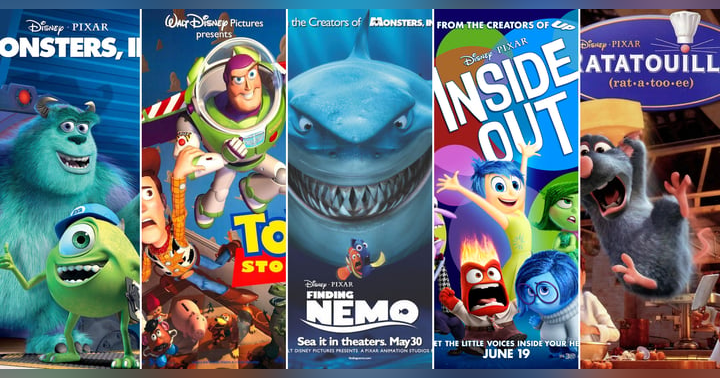David Fincher: The Definitive Director for Gen X

When discussing the most influential directors for Gen X—those born between 1965 and 1980—a few names immediately come to mind: Quentin Tarantino, Christopher Nolan, Richard Linklater, the Coen Brothers, Paul Thomas Anderson, Kevin Smith, Wes Anderson, and even industry titans like Steven Spielberg and Martin Scorsese, each has had a profound impact on shaping how Gen X experiences cinema. But one name stands above the rest—David Fincher. No director has consistently captured the dark, cynical, and intellectually engaging spirit of Gen X while redefining modern filmmaking. With a body of work that spans psychological thrillers, mind-bending mysteries, and deeply unsettling dramas, Fincher is the ultimate filmmaker for a generation raised on scepticism, rebellion, and a deep distrust of authority.
Here's why Fincher isn't just in the Top 5—he's the best director for Gen X.
Fincher's Aesthetic: Precision, Darkness, and Perfectionism
If Gen X had a visual style, it would be gritty, moody, and meticulously crafted—just like a Fincher film.
Fincher's cinematography is unmistakable: muted colour palettes, striking contrasts, and a deep focus on realism. His meticulous attention to detail borders on obsessive—he's known for doing dozens of takes to get a scene just right (The Social Network's opening bar conversation took 99 takes!).
Unlike Spielberg's optimism or Tarantino's hyper-stylized violence, Fincher's world is cold, precise, and brutally honest. Whether it's the rain-soaked noir of Se7en, the industrial grime of Fight Club, or the clinical digital sharpness of The Social Network, his films always feel designed but never artificial.
Gen X, known for its cynicism and love for authenticity, connects deeply with this aesthetic. If Gen X had a visual style, it would be gritty, moody, and meticulously crafted—just like a Fincher film.
Fincher's cinematography is unmistakable: muted colour palettes, striking contrasts, and a deep focus on realism. His meticulous attention to detail borders on obsessive—he's known for doing dozens of takes to get a scene just right (The Social Network's opening bar conversation took 99 takes!).
Unlike Spielberg's optimism or Tarantino's hyper-stylized violence, Fincher's world is cold, precise, and brutally honest. Whether it's the rain-soaked noir of Se7en, the industrial grime of Fight Club, or the clinical digital sharpness of The Social Network, his films always feel designed but never artificial.
Gen X, known for its cynicism and love for authenticity, connects deeply with this aesthetic.
He Made the Definitive Movies About Gen X Angst
Few filmmakers have explored disenchantment, alienation, and existential dread like Fincher. His films aren't just thrillers but deep psychological dissections of modern life.
- Fight Club (1999) – The ultimate Gen X film. It's an anti-establishment manifesto wrapped in an adrenaline-fueled psychological thriller. It speaks directly to male disillusionment, the emptiness of consumer culture, and the search for identity in a corporate-controlled world. Even if some audiences misunderstood the film's satire, Brad Pitt's Tyler Durden became a pop culture symbol of rebellion.
- The Game (1997) – A lesser-discussed Fincher gem that taps into paranoia, corporate burnout, and the crushing weight of privilege. A cold businessman (Michael Douglas) is thrown into a life-altering experience that forces him to question everything he thought he knew. Sound familiar? That's classic Gen X scepticism.
- Zodiac (2007) – An obsession-fueled crime drama about the search for truth in a world of misinformation. The digital age's information overload was predicted in this film, making it a perfect metaphor for a generation raised before the internet but trapped by it now.
Fincher's movies aren't just dark for the sake of being dark—they capture the anxieties and struggles of Gen X better than almost any other filmmaker.
His Storytelling is Designed for the Intelligent, Skeptical Viewer
Gen X grew up in a world of corporate lies, media manipulation, and broken institutions—from Watergate to the Challenger disaster to the dot-com bubble. They are natural sceptics, and Fincher's storytelling caters to that mindset.
Unlike Spielberg (who often leans into sentimentality) or Tarantino (who indulges in stylized pulp fiction), Fincher creates puzzle-box narratives that reward critical thinking. He assumes the audience is intelligent and never spoon-feeds information.
- Gone Girl forces the viewer to question media bias, unreliable narrators, and identity performance.
- The Social Network examines how tech billionaires (and Gen X themselves) shaped the modern world, for better or worse.
- Mindhunter (his Netflix series) redefines crime storytelling, focusing on psychology rather than sensationalism.
Fincher's films demand attention and reward rewatching—a perfect match for Gen Xers who appreciate depth in storytelling.
He's a Digital Filmmaking Pioneer Without Losing Substance
One of Fincher's most significant contributions to cinema is his embracing of digital filmmaking. Unlike Spielberg or Scorsese, who started in the film era, Fincher was one of the first major directors to embrace digital cameras and CGI as storytelling tools fully.
- The Curious Case of Benjamin Button (2008) was groundbreaking in using digital de-aging and CGI without feeling artificial.
- The Social Network (2010) used digital filmmaking to make a dialogue-heavy drama feel visually compelling.
- Mank (2020) was a love letter to old Hollywood shot entirely in crisp black-and-white digital format—a testament to Fincher's ability to blend new technology with classic storytelling.
Gen X appreciates old-school craftsmanship and cutting-edge technology—Fincher is one of the few directors who seamlessly masters both worlds.
Why Fincher is a Better Fit for Gen X than Spielberg & Scorsese
Spielberg: The Master of Boomer Nostalgia
Steven Spielberg is undoubtedly one of the greatest directors of all time. However, his films cater more to Baby Boomers and Millennials than Gen X.
- E.T., Indiana Jones, and Jurassic Park were magical, escapist adventures Millennials adored.
- Schindler's List and Saving Private Ryan captured historical heroism and sentimentality—again, powerful, but not typically Gen X cynicism.
While Gen X enjoys Spielberg, his brand of optimism doesn't define them.
Scorsese: The Master of Crime, But Not the Voice of Gen X
Scorsese's contributions to cinema are undeniable, and films like Goodfellas and Casino were massive Gen X favourites. However, Scorsese's themes of mafia power, Catholic guilt, and old-school masculinity resonate more with Boomers.
Gen X was more drawn to existentialism, conspiracy, and intellectual dissection, making Fincher a better fit.
The Gen X Verdict: Fincher is #1
David Fincher isn't just a top-tier director—he's the defining filmmaker for Gen X.
✔ His aesthetic matches the generation's love for precision, darkness, and realism.
✔ His themes explore Gen X disillusionment, corporate cynicism, and media manipulation.
✔ His storytelling challenges audiences, rewarding deep thinking and rewatchability.
✔ He balances old-school craftsmanship with digital innovation.
While Tarantino, Nolan, Linklater, and others are significant influences, Fincher's filmography, themes, and style make him the ultimate director for Gen X.
Want proof? Just ask yourself—what movie captures the disillusionment, scepticism, and identity crisis of Gen X better than Fight Club?
We'll wait.
🎬 What do you think? Does Fincher deserve the Gen X crown? Let us know in the comments.















